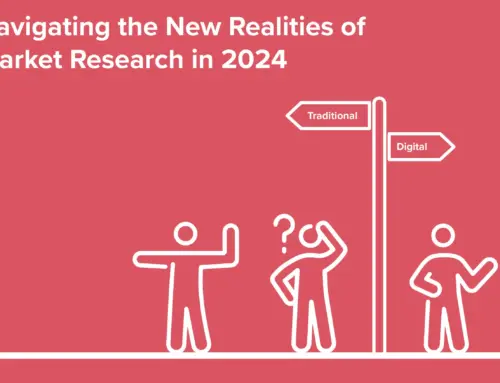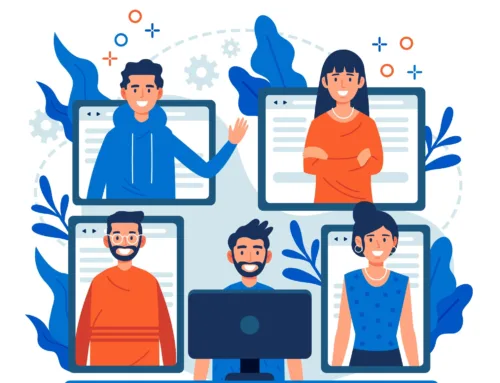What are online focus groups?
The definition of an online focus group is a focus group conducted via the Internet using online focus group software. An online focus group is one of the more recent online research methods utilized primarily for business research, consumer research, and other qualitative online research. Group discussion will range from brainstorming exercises (new product ideation) to product concept feedback to business or personal perspectives.
Online focus group research is now widely utilized by brands, organizations, and researchers who are unable to conduct offline focus groups or who would prefer to manage qualitative insights. To efficiently conduct an online focus group, you must utilize a tool, such as online communities, that facilitates the management of your online qualitative research.
Online focus groups are quick, economical, and geographically unrestricted because respondents can participate remotely.
Common mistakes during the online focus groups:
Not having a clear market research objective
Without a clear understanding of what you hope to learn or achieve from the focus group, it can be challenging to design effective questions and steer the discussion in a productive direction. Make sure that you will have a structured research session.
Being too rigid in sticking to the discussion guide
It is impossible to predict what new ideas and discoveries will emerge from online focus groups. However, some researchers make the error of adhering to a script. The issue is that adhering to a script makes it difficult to control the tone of a conversation, restricts an open discussion, and consequently restricts the flow of new ideas and concepts.
Not having a experienced moderator
A trained moderator is essential for maintaining the discussion’s focus, encouraging participation from all members, and resolving any potential issues.
Completely ignoring the value of an over-recruitment
We cannot emphasize enough the importance of over-recruiting so that you are prepared for any eventuality. Make sure that you will recruit more participants, just in case. Your participants are human, after all, and there are a variety of reasons why they could drop out at the last minute, such as a lack of availability or technical difficulties on the day.
Failure to follow up with participants
Following up with participants after the focus group can help address any lingering questions or concerns and provide any additional information that may be required.
Not paying much attention to the group dynamics
The interactions between participants can influence the data in a focus group, which is a dynamic setting. Monitoring the group’s dynamics can prevent the discussion from becoming skewed or dominated by a few individuals.
Poor transmission quality
The clarity of the transmission is an important factor that has the potential to divert your online discussion groups. Because of this, it is recommended to carry out some early tests and to provide the participants with detailed instructions. You are not resistant to connection problems with the people who are participating in the focus group, regardless of the precautions that you can take.
Bad software selection
It’s all well and good to take your time finding the right moderator and ensuring you have a sufficient number of over-recruits, but if you don’t have the right software in place, it will be difficult to conduct successful online qualitative research. Therefore, you must carefully consider which software provider you will select, ensuring that they are sufficiently secure, protecting the privacy of your participants, and selecting user-friendly software.
The correct number of participants for online focus groups
The optimal sample size is 6 to 8 focus group participants. Members of the online groups should ideally be linked via webcams so they can see each other, and the moderator should be able to share ideas via a screen share and by displaying stimulus ideas on the screen.
Duration of the focus group and level of attention
In market research, the optimal length of a focus group is a frequently asked question. The majority of focus groups that you will encounter will last between 60 and 120 minutes (2-hours). There are numerous benefits and drawbacks to both shorter and longer focus groups.
60-min focus groups
The strongest benefit of conducting 60-minute focus groups is that you can host multiple groups in a single evening or day. With longer sessions, you may only be able to host two sessions, whereas with shorter groups, you can host four. This enables a broader range of focus group participants and a greater representation of your target audience.
120-min focus groups
This is the typical duration of a focus group. They provide the capacity to cover a great deal of content. Even with a 15-minute introduction and 10-minute conclusion, there are still 95 minutes to cover the core objectives. Not always beneficial for participants, but beneficial for market research firms.
This length is preferred by many moderators because it allows them to get online focus group participants warmed up, establish rapport, and get them into a rhythm in the last hour to extract insights. This length necessitates hire payout and frequently results in a little group fatigue towards the end.
Summary
Qualitative research can be carried out in the form of online focus groups, which are a method of conducting the research over the internet. They are efficient, cost-effective, and unrestricted in terms of geographic location, all of which make them popular tools for research in the business and consumer sectors. However, there are a number of potential pitfalls that you should avoid.
The most major downside associated with participating in an online focus group is the possibility of experiencing a disruption in service, in addition to the challenges associated with effectively managing a large online group.
The use of online focus groups comes with a number of benefits, including the following: greater flexibility in terms of time and location, cost-effective, capability of accurately transcribing data in preparation for analysis. Despite the numerous advantages of online focus groups, especially in the context of a changing economy and the way we interact with each other, it is important to be aware of the potential pitfalls. In order to maximize the effectiveness of your online focus groups, ensure that you have clear market research goals and objectives, a qualified moderator, adequate over-recruitment, follow-up with participants, pay attention to group dynamics, maintain transmission quality, select the right software, and select the optimal number of quality respondents for your online focus group. With the right preparation and execution of the discussion guide, online focus groups can be an invaluable tool for gathering insights and consumer feedback often better than traditional focus groups.





